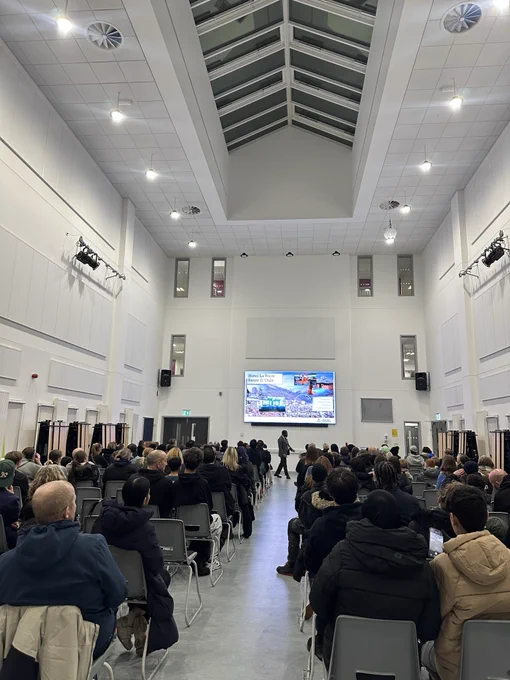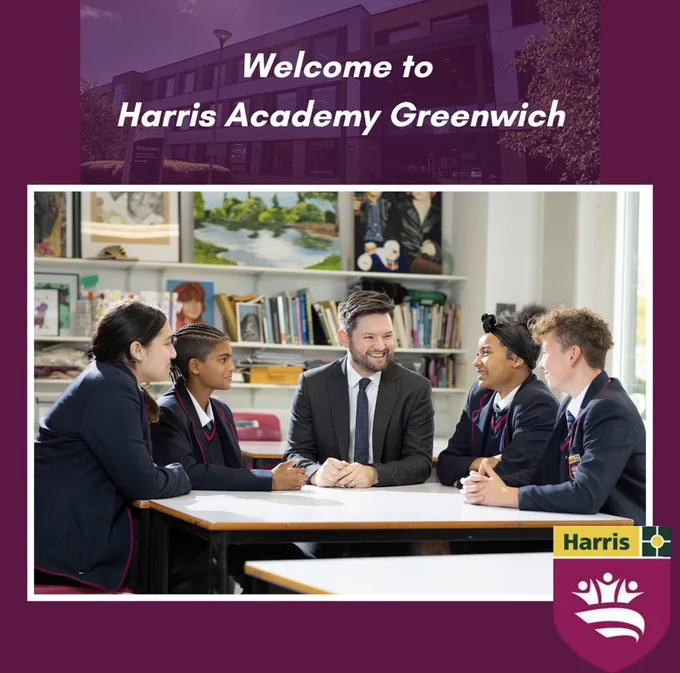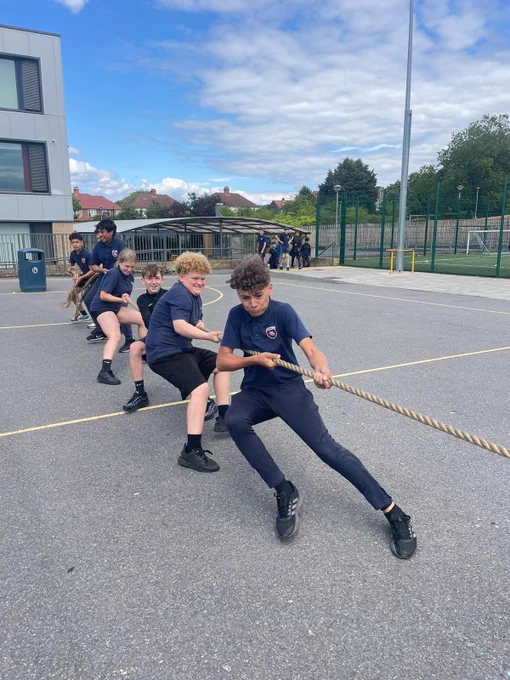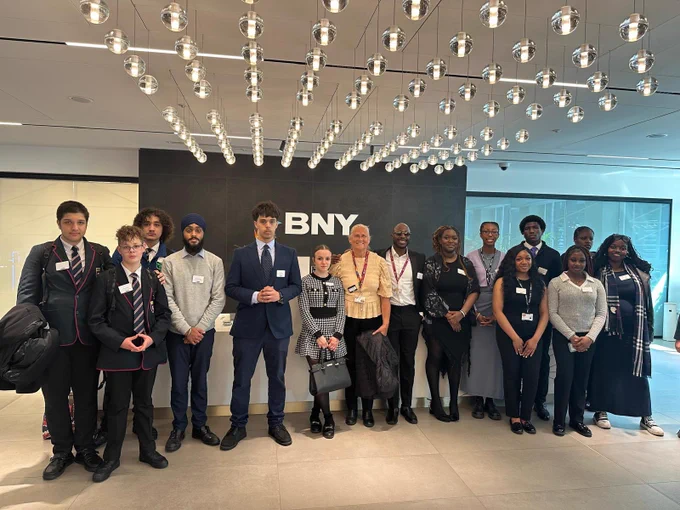English
English Subject Philosophy and Vision
“Books are the quietest and most constant of friends; they are the most accessible and wisest of counsellors, and the most patient of teachers.”
â Charles W. Eliot
Stories are the fabric of life and literature is the human attempt to understand the world around us. The study of literature explores the depths of human emotions. It has the power to open our minds beyond our own circumstances towards our diverse world, its people, and experiences. The study of literature can educate us of ancient societies, open our imagination to fantastical lands, communicate to us profound emotions, and ultimately teach us the pillars of empathy.
Through the centuries, literature has been a symbol of freedom. Knowledge liberates us and therefore the ability to read literature from different time periods and places educates us about our own rights and opinions. The knowledge we can find in books is liberating. Charles Dickens is undoubtedly a literary genius, and yet his education was poor, but his ability to read and read widely is what gave him the knowledge and skill to succeed. In a world of misinformation and rapidly evolving political propaganda, literature affords us the opportunity to develop critical reading skills and healthy scepticism through study of narrative voice, characterisation, language, writer’s purpose and the audience’s reception.
‘The limits of my language mean the limit of my world’
Ludwig Wittgenstein
Language is a powerful tool in communication, developing vocabulary and rhetoric equips young people in expressing themselves. Without it, the essence of what we want to say is restricted or even silenced entirely. In the study of literature young people are given a critical voice and are encouraged to in turn develop their own creativity in developing their own ideas.
‘Maybe ever’body in the whole damn world is scared of each other.’
John Steinbeck, Of Mice and Men
The study of literature is also a matter of social inclusion. The ability to communicate our truth, respect different viewpoints and appreciate the many different experiences of life are key to a world where people are free, happy and safe; the sole aim of any education system. Reading is not just a skill to be acquired for the workplace, it should not be a high brow activity that some are excluded from but instead gives everyone the dignity to understand and engage in culture.
We are passionate about the importance of literature and therefore our curriculum philosophy states that through the exploration of the literary canon and its contemporary and diverse adaptations, students will be explicitly taught to master and remember rich and powerful knowledge and how to use this knowledge in a structured and articulate way to develop scholarship, bridge literacy gaps and increase cultural capital to ensure success both inside and outside of school.
Year 7: How does English excite and inspire our imagination?
Myths, moral messages, mysterious and magical settings
Our literature curriculum takes students on a journey through the ages of literature, in Year 7 this begins with the Ancient Greeks, exploring the birth of theatre and the stories of the Gods before the English Language even existed.
This journey begins with students exploring Greek mythology and Ancient Greece, learning about ancient civilisation from Homer’s The Odyssey to the many mythological creatures and moral lessons of this period. Building on this study, students will develop their own writing with a granular approach to grammar, sentence and text construction and build understanding of a writer’s conscious choice of the written word.
As the new year begins, students will begin to explore a range of short stories and poetry from the Gothic genre covering texts such as The Woman in Black, Northanger Abbey and Dracula. Exposure to the conventions of the genre, the structure of a shorter text and building an understanding of poetic conventions will then lead to students developing further their own written style in the form of the gothic. Their writing will focus on detailed and high-quality descriptions of weather and setting and will take inspiration from their study thus far. Students will then go on to study poetry in more depth, focusing on the strength of female writers and female protagonists developing their understanding of poetic form, genre and structure as well as language and word choice for effect.
As students progress into their final term of year 7, they will explore rhetoric through the study of letters of note through history to develop the art of expression in more depth. Students finish their study in year 7 by exploring The Renaissance with their study of William Shakespeare’s A Midsummer Night’s Dream, consolidating their understanding of mythical setting and allusion through the fairies and magic in the text as well as understanding the complex language of Shakespeare.
Year 8: How does English allow us to explore our own identity and who we are as people?
Political texts, allegory, identity and rhetoric
The journey through literature continues in Year 8 where students develop their critical reading skills of complex themes and symbols from modern fiction during The Great Depression to short stories from around the world where students understand the power of their voice.
Students will develop their analysis of a range of texts in Year 8 by developing their knowledge of symbols and themes, characterisation and the writer’s purpose in rich texts. Students begin their journey in The Great Depression of 1930s America, where they are introduced to the idea of social commentaries by exploring complex themes such as discrimination, poverty and sexism. To support their understanding of political messages, students explore significant non-fiction texts of the period to explore how rhetoric is used to convey a political message. Students explore human rights speeches, the letters written by Steinbeck to support the novella and other compelling articles exploring similar themes to the novella. Through students’ study of a range of texts and meaning they develop an understanding of theme, political messages and how language communicates these messages.
The importance of understanding writer’s messages, context and use of symbols and methods is further developed in the exploration of a different form, identity poetry. Students develop their understanding of poetic convention whilst appreciating the wider global canon of literature. Here students explore the theme of belonging through poets such as John Agard and Grace Nichols, with a contextual link to the Windrush Generation. Students go on to explore themes such as oppression and discrimination in Africa, Asia and Britain through a range of poets. Students’ exploration of identity poetry concludes with celebratory poetry of identity reclamation through poets like Angelou.
Students will then develop their understanding of the power of literature through their reading of Animal Farm by George Orwell. They will learn about the Russian Revolution and allegory in texts to develop their critical understanding. This in-depth study of the text is then followed by an exploration of a range of related dystopian short stories from The Lottery by Shirley Jackson to Sultana’s Dream by Begum Rokeya. Students will develop their understanding of narrative structures, themes, motifs and allegory as well as critical literary theory to enable them to analyse texts through a variety of lenses. They will then use this study to continue the development of their own creative writing paying attention to developing characterisation to build and shape powerful narratives.
Students end the year with a further increased complexity in text as they revisit Shakespearean texts. Students explore Shakespeare’s tragedy of Romeo and Juliet, where they can draw upon their knowledge of The Renaissance from Year 7 and develop an understanding of the genres Shakespeare explored and the political messages portrayed.
By the end of the final term, students will build on their knowledge of the wide spectrum of human emotion, romance, and love from Romeo and Juliet to explore the poetic form of sonnets across a wide range of time periods and poets from Shakespeare to contemporary poets such as Simon Armitage. Students will develop their oracy skills through the performance of sonnets focusing on pace, purpose and pronunciation ready to continue their journey into year 9.
Year 9: How does English help to form, shape and develop our beliefs about the world?
Extended Persuasion, Propaganda and Political messages
The voyage through literature continues in Year 9 where students develop their critical reading and analytical skills with more complex texts, themes and historical knowledge. They begin this voyage with the conventions of tragedy in A View from The Bridge and explore complex ideologies such as capitalism and socialism in Animal Farm. Students develop an understanding of politics, history and allegory throughout this year.
Year 9 students begin studying the conventions of Aristotle’s Tragedies by reading A View from the Bridge by Arthur Miller where they also gain an insight into post-war America. This complements their prior knowledge of The Great Depression from Year 8 and builds upon their study of modern drama from the previous year’s study of Shakespeare. Students are also taught about the power of non-fiction, analysing a wide range of articles and speeches across time to develop their understanding of societal issues, from gender and immigration to poverty and social deprivation, which continue to endure and resonate today.
Students then continue their study with Stevenson’s Jekyll and Hyde where they are challenged to be critical about high level themes such as the duality of Good and Evil, the balance of science and religion and the concept of an innate savagery that may be within us all. Religious and classical allusions are explored here and pupils will draw upon their knowledge of Victorian society and features of the gothic novel.
Alongside this study of fiction, students will develop their own writing by developing their ability to create and develop character. Students will practise using the studied texts as a stimulus to create character description, personality and character flaws to practise their own craft in response to texts. Their imaginative writing of both fiction and non-fiction will be developed in all terms to ensure students apply their knowledge to their own organisation of ideas and writing.
Year 9 students further develop their language and literature skills by studying the life and works of Charles Dickens. Students will read extracts from a range of well-known Dickens texts, from Hard Times to Great Expectations to develop a breadth of Dickensian knowledge. Students will gain an insight into 19th century London to be able to discuss Dickens’ attitudes and purpose. This will lead students into planning their own Dickensian characters and 19th century settings and apply their knowledge of Dickens’ stylistic approach to form their own short narratives.
Year 9 English finishes with an in-depth exploration of the way in which the media present different perspectives through their articles from sensationalist news to objective news. Students will explore bias in the press, the influence of politics and belief systems in the shaping and creation of the media in order for students to be able to view the media with a critical eye helping them to make informed judgements about what to believe and what not to believe in a world where ‘fake news’ endures.
Year 10: Morality texts, power and conflict, writer’s purpose and crafting writing
Students will build on the foundation of literature they have learned in Key Stage Three as they move into Key Stage Four where students will be challenged to develop a critical voice, be more adept at understanding the writer’s purpose and context in each text studied. Students will also develop their independent writing skills and develop their own creative ideas and build confidence in their voice.
In Year 10 students begin their GCSE journey with A Christmas Carol by Charles Dickens. They develop their understanding of Industrialisation in the Victorian period and will build on their work in year 9. They develop their analysis skills of Victorian literature through exploration of Dickens’ messages on poverty, transformation and Christian values. They will learn advanced ideas about the Malthusian Catastrophe, Industrialisation and Dickens’ faith to complement the text. The focus of Year 10 will be to build this core knowledge of advanced texts and begin an introduction to Key Stage Four.
Students will then move into the study of the GCSE Poetry Anthology: Power and Conflict. They will first explore the war poems and understand the difference between modern and traditional warfare, understanding the vast experiences of combatants and non-combatants through this selection of poems. Rich historical knowledge and political context will be taught alongside the poems to develop students’ critical understanding and analysis of each text.
The art of creative writing will be developed with students, bringing together previous study of character, place and narrative arc will see students planning and creating their own narratives with a focus on accuracy of writing. Students will build on the Key Stage Three knowledge of Shakespeare in Year 10 with an in-depth study of Macbeth, a more complex tragedy than previously studied. Students will learn about the Jacobean era of Shakespeare’s writing, the medieval context of the setting and will be stretched to develop their own critical voices.
Students will end the year developing their responses to unseen fiction to build their resilience in reading widely and build their analytical skills. Students will then begin exploring rhetoric at a high level to complement this text and understand tone and viewpoint in modern articles and speeches, they too will express their own viewpoints in response to a range of stimulus and current affairs. Students will also focus on building ideas about current affairs and their own hobbies to create a speech to be performed for their GCSE Speaking and Listening Language exam in the final summer term.
Year 11
Year 11 students will continue to explore a range of poems and consolidate their learning in Year 10. Students will be challenged to think in more depth about texts, make key knowledge stick in long term memory and practise their own writing style to prepare for their examinations.
Students begin the year exploring the drama of the Edwardian period with JB Priestley’s An Inspector Calls. Students will consolidate their understanding of socialism and capitalism in a more nuanced way than their learning in Year 9 and do an in-depth study of the structure of this modern drama. They will build on the historical knowledge of industrialisation from A Christmas Carol and apply this to the context of worker’s rights in the Edwardian times.
Students will practise responding to a range of stimulus in their writing covering political strands such as gender, equality, the environment and a range of other important issues in order to develop a critical voice in their transactional writing and build ideas for their own creative writing. The development of writing and reading skills of both fiction and non-fiction will be the focus of the development of English Language GCSE skills. This will be developed throughout the year as students read a range of articles and unseen texts to build stamina.
Students will then continue to revise A Christmas Carol and develop their analysis of Dickens’ purpose for writing the text. Moving from the Victorian period, students will then consolidate Macbeth learning and practise their discursive writing and critical viewpoints about each text in preparation for both GCSE English Literature and Language. As part of revision, students will deliberately practise writing skills and analysis skills to develop their criticality throughout the year. Students will be given specific revision and revision techniques to complement their study and support home learning.
Year 12
The GCSE Literature course will have provided a sound foundation for the advanced study of Literature in Key Stage Five, when English is no longer a compulsory subject. The choice of this A level should be informed by students’ genuine enthusiasm for reading literature and exploring texts through discussion and written analysis. We have chosen a range of texts to reflect the diversity of English literature, to enable students to develop their own reading tastes and to provide a secure basis for the possible study of this subject at university.
For A Level English, students study six exam texts across the genres of Drama, Prose and Poetry. In addition, they make an independent choice of two texts for a 3000-word coursework essay, which accounts for 20% of the A level. In Year 12 students begin the course with an introduction to the advanced study of Narrative, Drama and Poetry. This leads into the study of the first exam texts, as well as providing students with a range of approaches to genres. The comparative Prose paper is theme-based, with the topic Science and Society. Students develop an understanding of Romanticism and Gothic through the study of ‘Frankenstein’ by Mary Shelley. This novel, judged by many to be the first work of Science Fiction in English Literature, is paired with Margaret Atwood’s modern dystopian classic, ‘The Handmaid’s Tale’, a feminist text which resonates very strongly in our times, with its underlying themes of repression and political and environmental catastrophe. Alongside the study of these texts, students also develop the understanding of Drama they acquired at GCSE. They build on their GCSE understanding both of tragedy and of the theatre through their study of Tennessee Williams’ twentieth-century American masterpiece, ‘A Streetcar Named Desire’, developing analytical and evaluative skills and their ability to interpret the conventions of drama texts.
Year 12 also brings the first encounter with medieval literature, in the study of Chaucer’s riotous Wife of Bath’s Tale. Although the language presents some initial challenges, this text gives students an understanding of the development of English. More familiar forms of poetry continue to be read throughout the year, with the aim of developing students’ confidence in the independent reading and interpretation of modern poems, all written since 2000, balancing the pre-1900 literature studied elsewhere.
Throughout the year, students are encouraged to read widely and independently, developing their own literary preferences in preparation for choosing their coursework texts. Enrichment lessons will broaden the curriculum beyond the study of examination texts: introducing students to literary theory; exploring key aspects of narrative (including genres not represented in the exam texts); acquiring an understanding of key periods in the history of literature.
Year 13
Year 13 students will complete their study of the exam texts, developing their own critical voice in response to literature. They will develop their insights through critical reading, evaluating other responses in order to arrive at their own interpretation. They will consolidate their essay-writing skills in order to produce controlled and critical arguments, in both coursework and examination questions.
Students begin the year with the Shakespearean tragedy ‘Othello’, building on the foundations they have already built in the study of drama throughout year 12. Alongside this, they study an anthology of critical writing exploring different approaches to and interpretations of the play, building resilience with literary criticism. Their responses to the critical reading are an important element in the exam essays students will write on this text.
Further modern poems are studied, bringing the total of set poems to 20, including the work of contemporary poets such as Patience Agbabi, Andrew Motion and Helen Dunmore. One part of the poetry exam paper includes responding to an unseen poem, so a wide range of poems that are not set texts will be read over the course of the year to both prepare for the exam and foster a love for a wide range of literature.
Students will be supported to be independent and critical with their coursework essays, completing this part of the component in the second year of the course. Students will also be revising their exam texts, with appropriate guidance and resources, developing their own ability to shape an analytical argument and evaluate the achievements of the writers they have studied. All the skills developed through this course, and the rich knowledge of the wide literary canon will aid students in the study of a University degree.





















